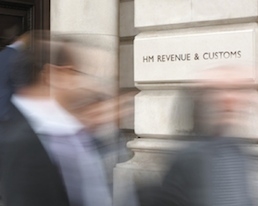Inheritance tax receipts rose 35% between April and August, up a third year on year, with Covid-19 deaths a potential factor in the increase.
The Government collected £2.7bn in inheritance tax (IHT), £0.7bn more than the same period last year, according to HMRC data released today.
Increases in IHT could be an opportunity for Financial Planners. Financial advice network The Openwork Partnership reported a 38% spike in demand for IHT planning in the past year, with more than one in ten clients wanting to discuss it.
Shaun Moore, tax and Financial Planning expert at Quilter, said the rise in receipts increased the importance of intergenerational wealth planning.
He said: “In March, Rishi Sunak announced that both the nil rate band and residence nil rate would remain frozen at existing levels until April 2026, at £325,000 and £175,000 respectively, meaning many families are already receiving increased IHT bills due to rising property and share prices.
“The best way to beat the big IHT freeze on allowances is to consider intergenerational wealth planning options such as making regular gifts; investing tax-efficiently or considering the use of trust planning, all of which a professional Financial Planner can help with to potentially eliminate any tax bill.”
Paul Archer, wealth planner at Kingswood, said the rise in IHT receipts was to be expected due to a lack of rises in the nil rate band, increasing estate values, and Coronavirus pandemic deaths.
He said: “The latest HMRC inheritance tax data shows that receipts for April 2021 to August 2021 were £0.7 billion higher than in the same period last year, reaching £2.7 billion.
"The main reasons for the rise in IHT receipts are threefold. First, the nil rate band of £325,000 - the asset amount an individual has free before they are charged IHT at 40% - has not risen since 2009. Second, estate values have risen in the last year mainly due to strong investment returns and property value rises. Third, the majority of wealth in the UK is owned by over 60s which is the age bracket where sadly Covid has resulted in more deaths than usual. Indeed for these reasons, we expect to see IHT receipts rising steadily this year and into 2022.”
Hargreaves Lansdown also said the rise in IHT receipts was to be expected due to the increased number of wealth transfers due to deaths during the Coronavirus pandemic.
Helen Morrissey, senior pensions and retirement analyst at Hargreaves Lansdown, said: “This data shows the enormous impact the pandemic continues to have. Total tax receipts were up £84.7bn compared to a year before, though this is largely down to deferment measures put in place to help individuals and businesses through difficult times. Inheritance tax receipts also show the enormous personal toll of Covid-19 with a £0.7 billion rise expected to be as a result of increased wealth transfers.”
Over 6,000 estates - worth £709m - that paid inheritance tax (IHT) in 2018/19 - included life insurance policies.
Policies can be easily excluded from IHT if put into trust, says Chartered Financial Planner Sean McCann from NFU Mutual who has flagged up the issue. The 'error' means that over £280m was paid out in IHT that could have been avoided.
If the policies were written in trust, they would not normally form part of the deceased’s estate and would therefore not be liable for inheritance tax.
Of the 22,100 estates that paid inheritance tax in 2018/19, more than a quarter of them (6,040) included life insurance policies, NFU research has revealed.

